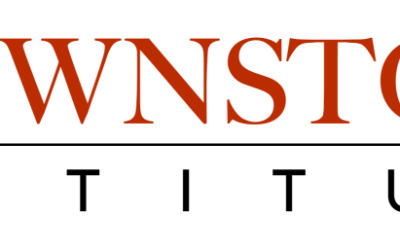When Canadians think of political parties, they focus on the teams of politicians fronting them.
But behind the scenes, Canadian political parties are increasingly getting support from a "political infrastructure" that plays a crucial role in selling their ideology to the public.
The Calgary-based Manning Centre, established and headed by Reform party founder Preston Manning, has been playing such a role since its inception six years ago.
It raised $1.2 million last year in non-tax-deductible donations, which helped it carry out research that lent credibility to conservative ideology. It also sponsored training sessions and networking gabfests for the conservative-minded.
The centre recently issued a 19-page report, titled State of Canada's Conservative Movement, which convincingly highlights the right's recent successes.
It pointed to Rob Ford's October 2010 mayoralty victory in Toronto, David Alward's October 2011 win in New Brunswick and Stephen Harper's snaring of a majority government in May.
It also pointed to the fact that conservative-minded parties currently hold 47 per cent of all the seats in the 1,023 provincial and federal ridings in Canada.
The role played by right-leaning think-tanks such as the Manning Centre or the Fraser Institute in those victories is unknown, of course.
But many believe them to be influential. Else, why would federal New Democrats and Liberals be hustling to create their own research organizations?
The Broadbent Institute is still in "its startup phase," says director Kathleen Monk, formerly an adviser to the late Jack Layton.
Announced in June by former NDP leader Ed Broadbent, it's to be based in Ottawa and will pitch socialist ideas and train left-of-centre political warriors.
The Canadian Centre for Policy Alternatives also does left-leaning policy research.
Federal Liberals, meanwhile, recently announced a party endowment to a fledgling Halifax organization named the Allan J. MacEachen Institute for Public Policy and Government, which is to be independent of the party.
Party representative Sarah Bain says the federal Liberal party is actively discussing creating "other such institutions."
So, why are political parties turning now to such organizations?
"Historically," explains the Manning Centre report, "political parties participated in serious policy development and policy communication campaigns."
But, "the realities of modern party politics … have forced most political parties to become primarily machines for running and winning the next election campaign."
Politicians, in other words, are preoccupied with getting themselves elected and manoeuvring to stay in power.
Ideally, think-tanks do the legwork between elections in selling the political philosophy involved.
"It's the task of the conservative movement," says the Manning Centre, "to move Canadians on to more conservative ground so that conservative-oriented political parties can more successfully appeal to them."
And donors out there seem willing to support the effort.
The Manning Centre notes that funding raised by conservative organizations has more than doubled in the past decade: "Canada enjoys a reasonably robust think-tank community on the right of centre."
Think-tanks on the right excel at policy analysis regarding budgeting and taxation, says the Manning Centre, but are weaker on health care reform, environmentalism, science policy, arts and culture and cities and infrastructure.
The report observes that Conservative perspectives are now well-represented in print media and talk radio, but not on television.
In a 2009 speech to the Frontier Centre for Public Policy, Allan Gotlieb – former Canadian ambassador to the U.S. and Donner Foundation chairman – said that, originally, policy organizations were founded to study the economy.
Canada now has about 50 of them, some politically independent, others partisan – a fraction of the U.S. contingent. Clearly, they are the way of the future.


